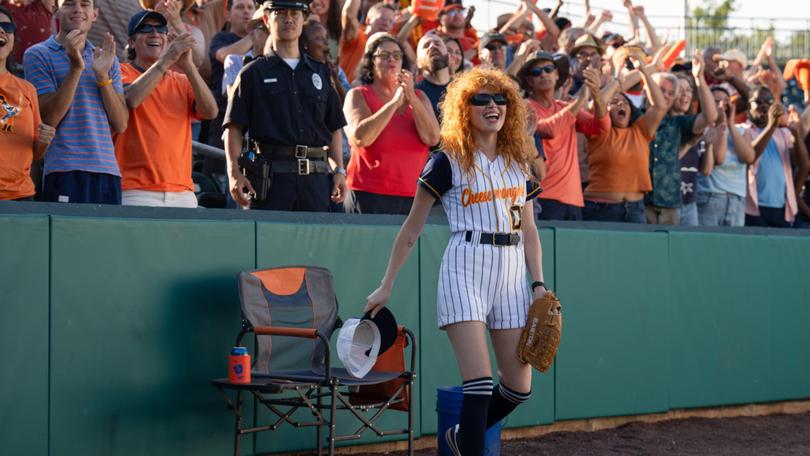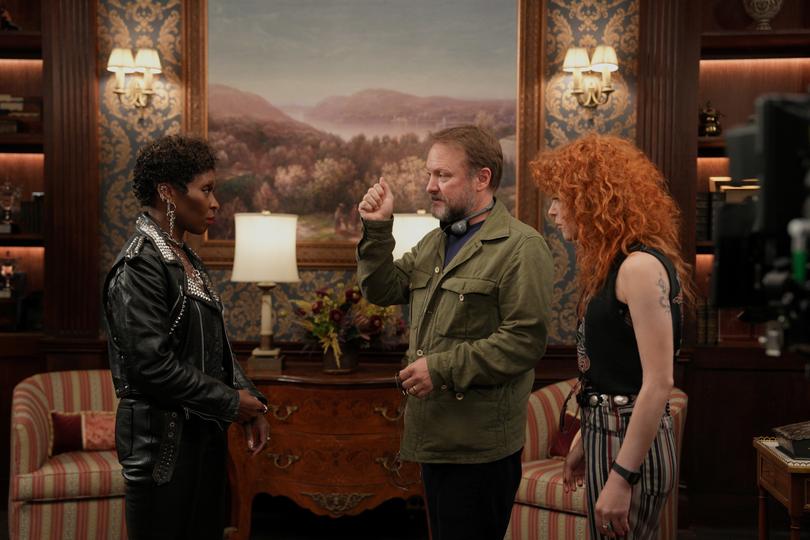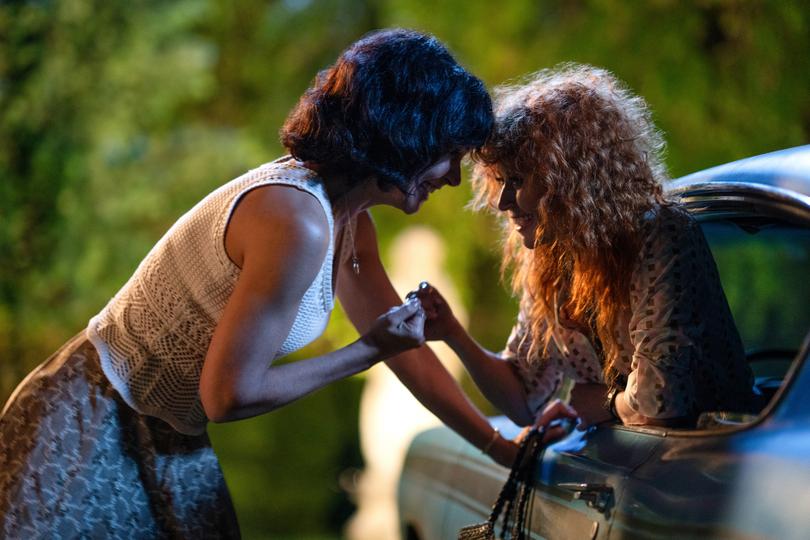Poker Face season two: Rian Johnson was thirsting for the comfort food flavour of murder mystery format
Poker Face is the fun, familiar and clever show it is because creator Rian Johnson knew exactly what kind of TV series he wanted to watch.

If Murder She Wrote’s Jessica Fletcher lived in the real world, her life would be incredibly grim.
“If she actually had been around for the number of murders she had seen, it would be a very dark show,” filmmaker Rian Johnson pointed out to The Nightly. “But there’s this unspoken contract with the audience that these are the mechanics of (these) shows.
“This is what we’re doing every week, and that gives you tonal permission to sort of have fun with it in a way that’s a little bit of a magic trick. I love those kinds of shows, it is very fun writing in that mode”.
Sign up to The Nightly's newsletters.
Get the first look at the digital newspaper, curated daily stories and breaking headlines delivered to your inbox.
By continuing you agree to our Terms and Privacy Policy.Fun is absolutely the word to describe Poker Face, which returned for its second season this past week. The series was created by Johnson, a filmmaker who revels in playing inside a genre, such as the film noir with Brick, the caper with The Brothers Bloom and whodunits with his Knives Out movies.
Poker Face is not a conventional murder-of-the-week, but a how-they’re-going-get-caught with Natasha Lyonne’s character, Charlie Cale, on the hunt with her unique gift of always being able to tell if someone’s lying.

The template allows Johnson, Lyonne and the writing team to play with their storytelling, cleverly crafting dastardly scenarios, villains and crimes for Charlie to come across as she drives from town to town across America.
That social contract between the genre and the audience is crucial, because otherwise it would be wildly implausible that even a character as itinerant as Charlie would stumble into so many homicides.
For Johnson, he made Poker Face because it gets back to “the pleasures of what I can TV-TV”, as in, episodic, almost old-school TV.
While he has had a great time bingeing TV shows, especially the serialised stories that has become in vogue in the past dozen years thanks to streaming, there’s nothing quite like the extended joy of the week-to-week.
“It’s my personal preference,” he said. “With something like Poker Face, it’s best consumed week-to-week because the essential pleasure of Poker Face is repetition. There’s a comfort in that repetition, and in that way, a case-of-the-week has a lot in common with the American sitcom, for example.
“It was a very specific structure and coming back as a hang-out with a character, and kind of knowing what you’re going to get each week while at the same time within that format, being surprised.
“That’s part of the comfort food enjoyment of that kind of television.”

Johnson is hesitant to ascribe a trend or a resurgence to the fact Poker Face is, right now, among a collection of procedural murder mysteries with a quirky female sleuths, the others being Elsbeth with Carrie Preston and High Potential with Kaitlin Olson.
But he knows that he created Poker Face because it was something he wanted to watch. “I had such a hunger for it, I was very much thirsting for it,” he said. “Pointing back to the sitcom, the fact it was surprising to people that especially younger viewers were gravitating towards shows like Friends and Frasier speaks to that desire for shows with that specific type of comfort food and flavour.”
The key is to keep surprising audiences within a familiar format. What will Charlie get up in next? This season, there’s an episode that Lyonne described as “like a David Mamet movie” while another is out-there and involves an Oreo-loving alligator. There’s a chapter involving a calculating primary schooler whose ambition and ruthlessness makes her one of the most terrifying antagonists the show has ever had.
Nothing is too crazy for Poker Face but Johnson is cognisant that every episode still needs to fit within the tonal bounds of the show. “If it feels too dark in a specifically cruel way, then it feels like a ‘no’, that it breaks it,” he explained. “Or if it feels like too much a Rube Goldberg machine, it doesn’t fit.”
The thing that really ties everything together though is one of the commandments of the series, which is the emotional bond between Charlie and the characters of that week.

“Charlie’s not a cop, so because it’s not her job to investigate these crimes, it forces us as writers to base every episode around a personal in to her wanting to solve the crime,” he said. “That always has to come from a relationship.”
That’s why Poker Face has pathos. We care because Charlie cares, and we also really care about Charlie. Not just because she’s fun to hang out with even though, undoubtedly, Lyonne is someone you’d definitely want at your party.
The first three episodes of this season ties off, maybe temporarily, an overarching plot in which Charlie was running from a gang trying to kill her. Without the story engine of why she needed to constantly be on the move, it introduces a changed dimension which is that Charlie can now settle down.
“Charlie has been on the run for a long time and there’s a bit of loneliness that comes with that,” Lyonne said. The actor likened her to a weathered kid that’s looking for a place to come home.
That creates more depth to the connections Charlie is trying to form to the people she meets, which elevates the stakes.
“Every relationship she forms, could this be something that lasts beyond this time and place,” Johnson said.
“We can’t cheat and just have a clever mystery.”
Poker Face season two is streaming on Stan with new episodes weekly

